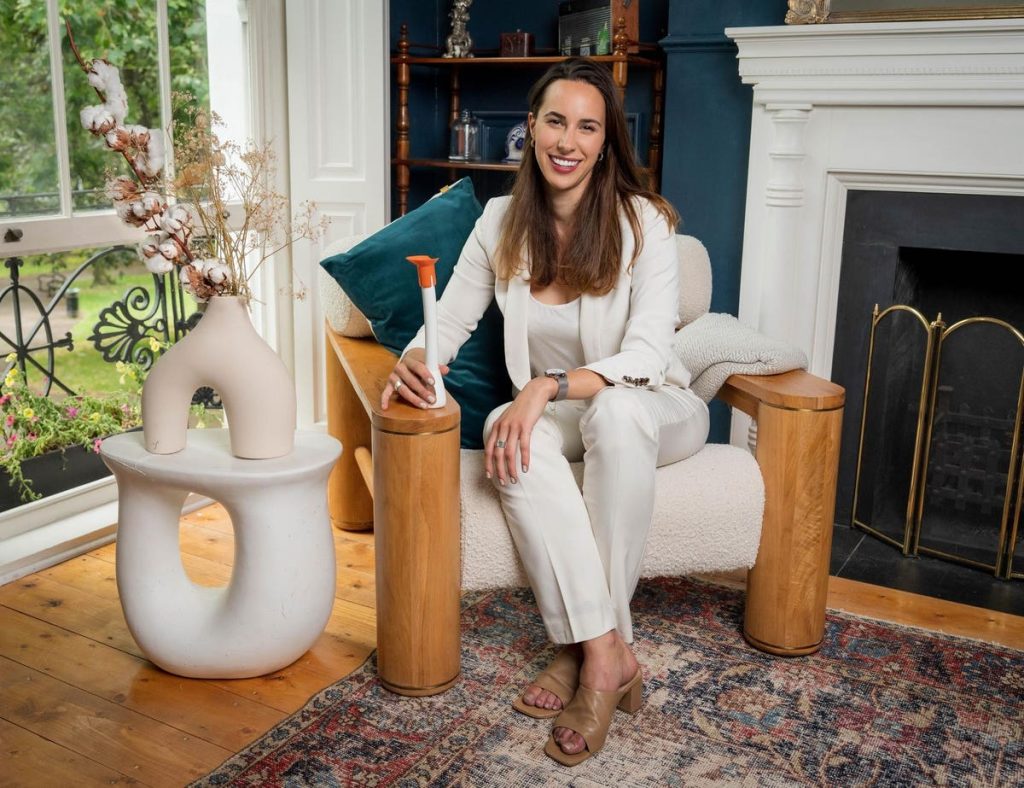It’s well-documented that accessing fertility treatment through the NHS in the U.K. is a postcode lottery. Access depends on factors as arbitrary as where you live, your relationship status, your BMI, and your sexual orientation. And wherever you are in the world, paying for private fertility treatment is prohibitively expensive, locking many people out of starting a family; or forcing people to rack up debt in order to do so.
These are only some of the reasons why lots of startups in the fertility space are now innovating to create new ways to help people pay for the expensive fertility treatments that already exist or to enable people to better understand their (in)fertility journey. But very few are actually creating brand new fertility treatment options to make fertility care more accessible, affordable, and inclusive for every family.
“We spotted an opportunity to bring a brand new treatment to market that could fill this gap and potentially support millions of people to start a family before they take on the emotional, physical, and financial burden of clinical treatments like IUI and IVF,” starts her story Tess Cosad, CEO and co-founder of Béa Fertility.
Béa, cofounded by Cosad and her business partner and product engineer George Thomas, is a fertility company making clinical-grade fertility care available at home, creating a brand new treatment option on the fertility care pathway for people who are trying to conceive, whilst publishing research and closing the fertility data gap to drive advancements in early-stage fertility care. Cosad shares how they’re the only company in the U.K. currently enabling people to carry out Intracervical Insemination (ICI) safely at home – an effective and clinically-validated fertility treatment that is cheaper and less invasive than IVF and IUI.
“Our treatment is targeted at people who are struggling to conceive, who may be ineligible for NHS-funded fertility care, who are not able to access clinical care, or who simply want to try something at home before going down the clinical route. The design of our treatment (no intercourse is required for use, and can be used with donor sperm) is such that we have a particular focus on widening access to care for LGBTQ+ families and groups traditionally excluded from existing fertility care. The treatment is safe, simple, and designed for use at home, meaning anyone trying to conceive can try this at-home intervention on their journey to building a family,” adds Cosad.
At-Home Fertility Treatment
Today, the company has announced it has raised $3.2 million in funding to release its at-home fertility treatment to early adopters in the U.K. The round was led by Octopus Ventures and joined by JamJar and Forward Partners, with additional participation from existing investors Calm/Storm and Q Ventures. This raise brings Béa Fertility’s total funding to date to $4.2 million.
So how does Béa’s at-home fertility treatment work? The Béa Treatment involves placing a small cervical cap containing semen at the cervix using a clinically-approved applicator. The cap is left in situ for an hour; and during that time, users can go about their days as normal. Two weeks after treatment, users test for pregnancy. There are no invasive hormone injections or clinical procedures involved. The Béa Treatment is designed to be used at home and can be used with donor semen.
ICI has been shown to have 50% efficacy over 6 cycles of treatment and was recently included in the NICE clinical guidelines alongside IUI and IVF. The UK’s IVF success rate is 27%.
Béa’s aim is to make a transformative and inclusive new fertility offering available to people who are struggling to conceive, with a focus on widening access to care for LGBTQ families and groups traditionally excluded from existing fertility provisions.
According to Cosad, Innovation in the fertility sector has long been focused on optimizing IVF outcomes. “We haven’t seen much innovation in early-stage fertility treatment (pre-IUI or IVF) in years. Human hormone health is showing clear signs of decline, and all the data point toward the family journey getting harder and harder. What we need more than ever is simple, home-based interventions that provide options for treatment and diagnosis before we get to the clinic. The family-building journey is so incredibly human, and access to the care and support you need to build your family should be a basic human right.”
The World’s Largest At-Home Fertility Treatment Study
The first people to purchase a Treatment Kit and join the Béa community will be contributing to the world’s largest at-home fertility treatment study. During this initial treatment roll-out, Béa will be collecting observational and efficacy data to close the data gap surrounding infertility. Over 1000 people have already signed up to take part, shares Cosad. The study aims to drive advancements in the development of early-stage fertility interventions and accelerate Béa’s mission to build accessible fertility treatments for all. The early results of the study will be presented at the IFFS World Congress in Athens later this year.
The company is now live in the U.K. and is also launching a pioneering pilot which will trial the use of its kit within the NHS. Working in partnership with South Fulham Primary Care Network, Béa will be providing direct access to fertility treatment in primary care for the first time. From this month, GPs will be able to refer patients seeking fertility support to Béa Fertility, expanding the fertility services and support offered through the PCN’s Women’s Health Hub.
A big part of what’s next for the company is building out a ‘primary care’ fertility treatment pathway, developing a product roadmap that holds their families’ hands throughout their entire conception journey, from the moment they decide to start their families, to the moment they have the family they always wanted. As well as building out the product and offering more support to their users, they’re also working on their U.S. launch.
Richard Reed, founding partner of JamJar (one of the investors in this round) shared how this is “the proudest investment I’ve ever made – helping those who are struggling to start a family to do so and to do so naturally. The success of this business is going to be measured in the number of newborn babies.”
“Fertility is an intimate and exciting thing, but all too often existing fertility care pathways make the fertility journey feel clinical and scary. We hope to fill this gap and put the joy and hope back into the fertility journey by creating accessible and inclusive treatments that are designed for every family,” concludes Cosad.
Read the full article here










